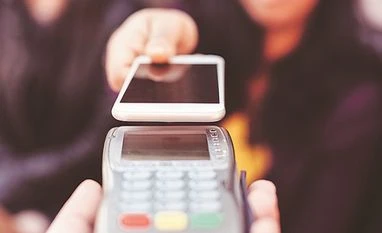Fifty per cent of train tickets in the country are still purchased in cash, thanks to the dependence on neighbourhood ticketing agents, said a study.
RailYatri, a web-based firm that provides various rail and bus based solutions, conducted the study among 50,000 travellers across 25 cities and consulted around 800 travel agents.
The study has found that even though 65 per cent of rail passengers prefer digital payments while buying a ticket, 50 per cent of the train tickets are still bought in cash, notwithstanding the central government's digital push.
"This has in turn led to the popularity of train ticket booking through these mom-and-pop travel agents," he said.
The study has shown that most travellers prefer going to a local agent because it "reduces complexity" and "helps in decision making".
It also found that the Payment Gateway (PG) charges at 0.7 per cent (for train tickets priced less than Rs 2,000) was acting as a hurdle for travel agents.
The typical PG charges vary between 1.5 to 2 peer cent depending on the provider, with most providers falling on the higher side.
"Agents, understandably, are unwilling to pay for the difference above 0.7 per cent to the providers from their own pocket," it said.
The study further stated that while the cost of train tickets have increased more than 80 per cent in the last five years, the commission of travel agents have remained at Rs 20 to Rs 40 per ticket since many years.
"All these factors have forced travel agents to continue with cash payments as avoiding the digital route allows them to charge without a trail of the actual amount paid," it said.
The study also called for making the digital payment modes sturdy by removing the chinks.
RailYatri, a web-based firm that provides various rail and bus based solutions, conducted the study among 50,000 travellers across 25 cities and consulted around 800 travel agents.
The study has found that even though 65 per cent of rail passengers prefer digital payments while buying a ticket, 50 per cent of the train tickets are still bought in cash, notwithstanding the central government's digital push.
More From This Section
"A significant consumer section of India depends on managed services, especially when the complexity of their need is high. And because of the supply-demand mismatch and other uncertainties around train travel, ticket booking falls in this bucket," said Manish Rathi, Co-Founder and CEO, RailYatri.
"This has in turn led to the popularity of train ticket booking through these mom-and-pop travel agents," he said.
The study has shown that most travellers prefer going to a local agent because it "reduces complexity" and "helps in decision making".
It also found that the Payment Gateway (PG) charges at 0.7 per cent (for train tickets priced less than Rs 2,000) was acting as a hurdle for travel agents.
The typical PG charges vary between 1.5 to 2 peer cent depending on the provider, with most providers falling on the higher side.
"Agents, understandably, are unwilling to pay for the difference above 0.7 per cent to the providers from their own pocket," it said.
The study further stated that while the cost of train tickets have increased more than 80 per cent in the last five years, the commission of travel agents have remained at Rs 20 to Rs 40 per ticket since many years.
"All these factors have forced travel agents to continue with cash payments as avoiding the digital route allows them to charge without a trail of the actual amount paid," it said.
The study also called for making the digital payment modes sturdy by removing the chinks.
)